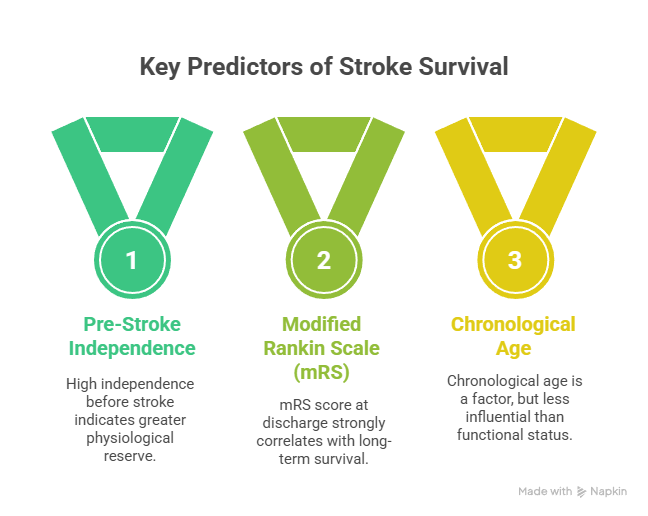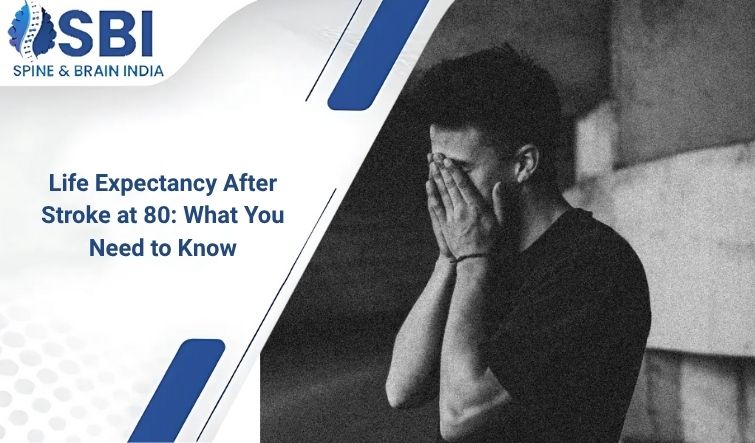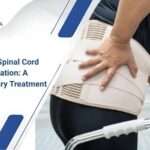If you or a loved one has recently suffered a stroke, and you are facing this challenge at the age of 80 or beyond, the questions are profound, and the uncertainty can feel overwhelming. One of the most common, yet emotionally charged, questions that surfaces is one of prognosis: life expectancy after stroke at 80. It is a natural and necessary inquiry, born of a deep need for clarity and a desire to understand what the future holds.
It’s important to begin with this crucial perspective: while statistics can offer broad averages, they do not, and cannot, define an individual’s journey. Every person is a unique complex of health history, resilience, and personal determination. The best medical approach is to move beyond the cold numbers and focus instead on the specific, manageable factors that will ultimately determine not only the quantity of life but, more importantly, its quality. We will explore the data, but we will always frame it within the context of hope, effective treatment, and personalized care.
1. Addressing the Statistics: The Reality of Life Expectancy After Stroke at 80
The elderly population, particularly those aged 80 and above, is unfortunately the most vulnerable group when it comes to stroke. As we age, our blood vessels lose elasticity, and the likelihood of co-existing health conditions (comorbidities) increases, all of which complicate recovery.
Statistically, it is true that a stroke at this advanced age carries a higher mortality risk compared to younger populations. Global research provides some perspective on the average survival rates for patients in this age bracket following a stroke:
- 1-Year Survival Rate (Ages 80-85): Averages around 76.8%
- 5-Year Survival Rate (Ages 80-85): Averages around 64.6%
- Survival Over 85 Years: The rates show a further decline, with 5-year survival dropping to approximately 49.8%.
These figures confirm that stroke is a serious, life-shortening event, particularly for the very elderly. However, these are averages drawn from massive populations, including those who received minimal or delayed care and those with severe pre-existing health issues. The key takeaway here is not despair, but a heightened sense of urgency and a commitment to aggressive, specialized care. When asking about life expectancy after stroke at 80, the most important insight is not the average, but understanding the factors that allow individuals to significantly outperform the average.
2. The Dominant Predictor: Functional Status and Quality of Life

While chronological age is a factor, the single most powerful predictor of long-term prognosis and life expectancy after stroke at 80 is the patient’s functional status both before the stroke and at the time of hospital discharge. This concept separates the robust 80-year-old from the frail 80-year-old, defining what doctors refer to as the “biological age” or “healthspan.”
- Pre-Stroke Independence: Did the individual live independently, manage their own affairs, and have good mobility before the stroke? A higher level of pre-stroke independence suggests a greater physiological reserve—a healthier heart, lungs, and neurological system—which allows the body to weather the stroke and respond better to rehabilitation.
- The Modified Rankin Scale (mRS): This is the gold standard for measuring post-stroke disability. Studies consistently show a profound link between the mRS score at discharge and long-term survival.
- Patients discharged with minimal or no disability (mRS 0-1) show a significantly extended median survival duration, sometimes measured in years (∼47 months or more).
- Conversely, patients who remain severely disabled or fully dependent (mRS 4-5) face a much lower life expectancy after stroke at 80, primarily due to complications like recurrent stroke, pneumonia (from aspiration), bedsores, and general frailty.
This emphasizes the core principle of stroke care: the goal is not just to survive the initial event but to regain as much functional independence as possible. The better the functional outcome, the better the long-term prognosis.
Concerned About Life After Stroke at 80?
Recovery and quality of life after a stroke depend on expert care and early rehabilitation. Consult Dr. Arun Saroha, a highly experienced neurosurgeon with 25+ years of expertise in stroke management and brain health, to ensure the best possible outcomes.
Talk to a Stroke Specialist3. The Crucial Role of Co-existing Health Conditions (Comorbidities)
The life of an 80-year-old is often complicated by multiple chronic health issues, and these comorbidities significantly influence life expectancy after stroke at 80. The presence and severity of these conditions deplete the body’s reserve and accelerate mortality post-stroke.
- Dementia and Cognitive Impairment: Pre-existing dementia or cognitive decline severely limits a patient’s ability to participate effectively in rehabilitation, follow safety instructions, or manage their own medications. Studies have linked pre-existing dementia to a significantly higher mortality risk post-stroke.
- Atrial Fibrillation (A-Fib): This irregular heartbeat is a major cause of stroke, and its presence drastically increases the risk of a recurrent stroke. Aggressive, consistent management with anticoagulation is essential for survival.
- Heart and Vascular Disease: Conditions like congestive heart failure, coronary artery disease, and chronic limb-threatening ischemia not only increase the risk of a stroke but also make the recovery phase perilous, as the heart may struggle under the strain.
- Hypertension and Diabetes: These conditions are key drivers of vascular damage. Long-term, poorly controlled high blood pressure or blood sugar accelerates the hardening of arteries, making both the initial stroke more severe and the risk of recurrence extremely high. Controlling these factors post-stroke is paramount to extending life expectancy after stroke at 80.
4. The Impact of Stroke Type, Severity, and Acute Care
Not all strokes are the same, and the characteristics of the initial event play a decisive role in the long-term outlook.
- Ischemic vs. Hemorrhagic: Ischemic strokes (due to a clot) are more common and generally have a better long-term survival rate than hemorrhagic strokes (due to bleeding), which carry a higher early mortality risk.
- Severity and Location: A large, severe stroke affecting critical areas of the brain will naturally lead to greater disability and a shorter life expectancy after stroke at 80 compared to a small, lacunar stroke. The location determines the resulting deficit, which then dictates the level of dependency.
- The Speed of Treatment: The speed at which the stroke was treated with life-saving interventions like intravenous thrombolysis (tPA) or mechanical thrombectomy is a huge factor. Rapid intervention can significantly reduce the size of the damaged brain area, leading to a much milder disability and a far better prognosis. This underscores the critical importance of being treated in a specialized stroke center.
5. Maximizing Longevity: Control and Commitment in the Recovery Phase
While age and initial stroke severity are beyond your control, there are powerful factors that you, your family, and your medical team can control to maximize life expectancy after stroke at 80. This focus on prevention and restoration is the source of all hope post-stroke.
- Aggressive and Dedicated Rehabilitation: Rehabilitation is not merely a path back to independence; it is a life-extending measure. Physical therapy, occupational therapy, and speech therapy are crucial for reversing or limiting the initial disability. Individuals who are committed to their rehabilitation program and regain mobility significantly improve their survival prospects by reducing complications associated with immobility, such as pneumonia and blood clots.
- Vigilant Secondary Prevention: Preventing a second stroke is the most crucial step in maximizing life expectancy after stroke at 80. Recurrent strokes are often more damaging and carry a higher risk of death. The regimen includes:
- Medication Adherence: Diligent use of prescribed blood thinners (anticoagulants), antiplatelets, blood pressure medications, and cholesterol-lowering drugs.
- Lifestyle Changes: Quitting smoking, strictly controlling blood pressure and diabetes, and adopting a heart-healthy diet are vital.
- Social Support and Psychological Health: A strong social support network, family engagement, and management of post-stroke depression are vital. Social isolation and depression are independently linked to poorer outcomes and reduced life expectancy after stroke at 80. A positive, supported patient is one who will engage more effectively in the long, often frustrating process of rehabilitation.
The search for the best path forward after a stroke, especially in the very elderly, requires a specialized, multidisciplinary approach. Neurosurgeons and neuro-interventionalists are often the first specialists to provide life-saving acute care, managing the immediate crisis of the stroke itself. Furthermore, their expertise is invaluable in assessing the overall vascular health of the brain to mitigate the risk of recurrence.
Dr. Arun Saroha is a distinguished neurosurgeon with extensive experience in the diagnosis and management of complex neurovascular and spinal disorders. His expertise in advanced stroke management, from emergency intervention to comprehensive post-stroke care, positions him as a crucial partner in navigating the challenges of life expectancy after stroke at 80. By working with specialists who understand the unique vulnerabilities of the elderly, you ensure that every chance for recovery and longevity is explored. The journey is difficult, but with expert guidance, commitment, and family support, a fulfilling life is entirely within reach.
Concerned About Life After Stroke at 80?
Recovery and quality of life after a stroke depend on expert care and early rehabilitation. Consult Dr. Arun Saroha, a highly experienced neurosurgeon with 25+ years of expertise in stroke management and brain health, to ensure the best possible outcomes.
Talk to a Stroke SpecialistFrequently Asked Questions (FAQs)
Is a mini-stroke (TIA) a major factor in life expectancy at 80?
Yes, a mini-stroke (TIA) is a very significant factor, as it acts as a strong warning sign. While a TIA doesn’t cause permanent damage itself, it signals a high, imminent risk of a major stroke, which can drastically reduce life expectancy after stroke at 80. Immediate, urgent investigation and treatment following a TIA are essential preventive measures.
Does age alone make a good recovery impossible?
No, age alone does not make a good recovery impossible. While recovery may be slower, the outcome is far more dependent on the patient’s pre-stroke health, the severity of the stroke, and their commitment to rehabilitation. Many 80-year-olds with good pre-stroke function achieve significant functional gains.
What is the single best predictor of long-term survival after a stroke at age 80?
The single best clinical predictor of long-term survival is the patient’s functional independence level at hospital discharge, often measured by the Modified Rankin Scale (mRS). Lower disability scores strongly correlate with improved survival and higher quality of life.
How important is it to be treated at a specialized stroke center at age 80?
It is critically important. Specialized stroke centers are equipped to provide rapid acute treatments like mechanical thrombectomy, which are life-saving and disability-reducing. Timely intervention is particularly vital for the elderly to preserve brain tissue and maximize the chances of achieving a low disability score.
Should a stroke survivor at 80 stop taking certain medications?
Medication changes should only be made under strict medical supervision. After a stroke, patients are often prescribed blood thinners (anticoagulants) or antiplatelet drugs. Discontinuing these without a doctor’s guidance can immediately and drastically increase the risk of a fatal second stroke.
Can managing high blood pressure still improve life expectancy after a stroke?
Absolutely. High blood pressure is the number one risk factor for stroke recurrence. Aggressive and consistent management of blood pressure and other vascular risk factors like high cholesterol and diabetes is the most important step an 80-year-old stroke survivor can take to significantly prolong their life and reduce the risk of a second, more severe stroke.










